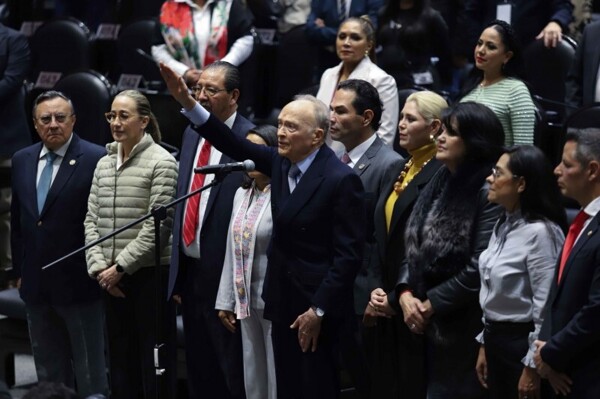
President Claudia Sheinbaum and her team face the threat from Donald Trump to impose a 25% tariff on imports from Mexico and Canada, including steel, aluminum, gas, and oil. After a call with Trump on February 3, a pause in the imposition of tariffs was achieved to allow time for negotiations, with a deadline of Tuesday, March 4.
Trump accuses Mexico of unfairly competing in the U.S. market with aluminum sourced from China and Russia. The tariffs will come into effect on Wednesday, March 12, if no agreement is reached. Sheinbaum has deployed 10,000 elements of the National Guard to the northern border to meet Trump's demands regarding drug trafficking and migrants.
Seizures of illicit drugs have intensified, and members of the Sinaloa Cartel have been arrested. Discussions have begun with the Trump administration to avoid the tariffs. Meanwhile, Trump has taken controversial actions such as renaming the Gulf of Mexico to the Gulf of America.
In response, Sheinbaum threatens to expand the lawsuit against gun manufacturers in the U.S. and will send reforms to Congress to protect national sovereignty against any foreign intervention. The tariffs would severely impact Mexico, harming nearly 80% of its exports destined for the U.S., which could cause a 2% drop in its economy.
The Deer Park refinery in Texas would be one of the most affected sectors by the tariffs, increasing its production costs. The Mexican economy would be weakened, with repercussions in the oil sector and a possible decrease in remittances. The tariff effects could weaken the Mexican peso and the Canadian dollar.














